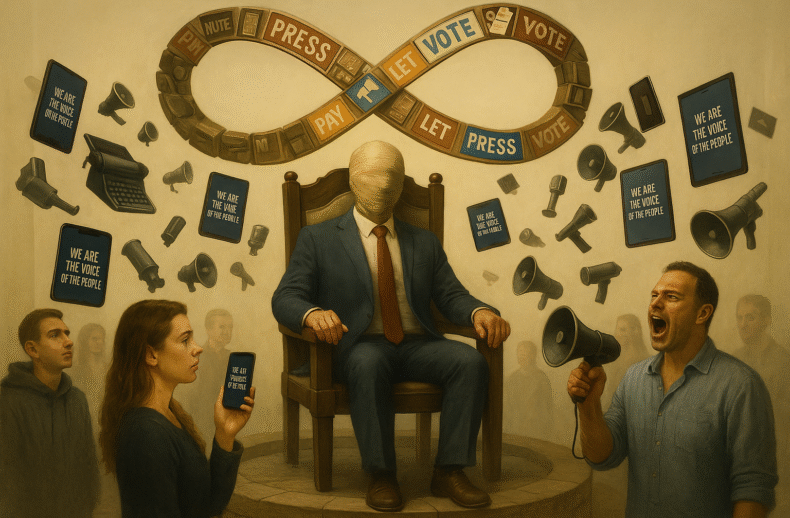Climate protests that glue bodies to asphalt seek to disrupt—but often perform.
What appears radical is quickly absorbed by the recognition loop: shared, judged, forgotten.
Without structural change or personal coherence, even resistance becomes spectacle.
The glue dries. The system stays.






